
The “Media Consumption in Armenia” study, in addition to information on the sources and priorities of information, also has a questionnaire on media literacy.
And this questionnaire helps to get an idea of what is important for the audience at the moment, what people expect from news platforms (and not only from the media but also from various online resources).
To the question “In which case is the information suspicious/unreliable?” Armenians gave classic answers about the coincidence of the title and the content and the credibility of the source.
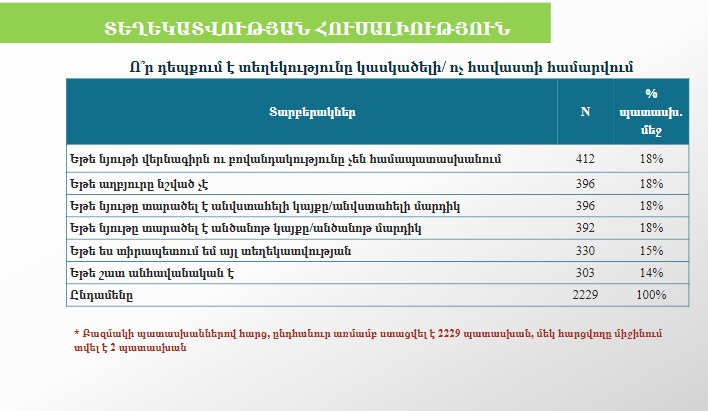
The survey was conducted in 1,213 households and provided an opportunity to respond spontaneously. That is, people answered as they wished, without hints, giving an average of two answers.
In the conditions when television has given way to social media, social networks are considered to be the main source of information. It also means that many do not differentiate the sources of information.
And just as no Armenian can control social media management innovations (the logic of algorithms), they also do not see much difference between online media and online platforms. The news read in the media is by no means different from the news found in the twists and turns of the Internet.
This is a natural but worrying tendency, first of all, for the professional media, because if the consumer is powerless to influence social media, they can at least interactively engage with the Armenian media.
For example, to influence the content through feedback. And it is not just about admiring comments or complaints, but about supplementing, correcting, or making the information more complete.
To the question “What do you do when you encounter suspicious information?” the majority of the respondents answered – nothing.
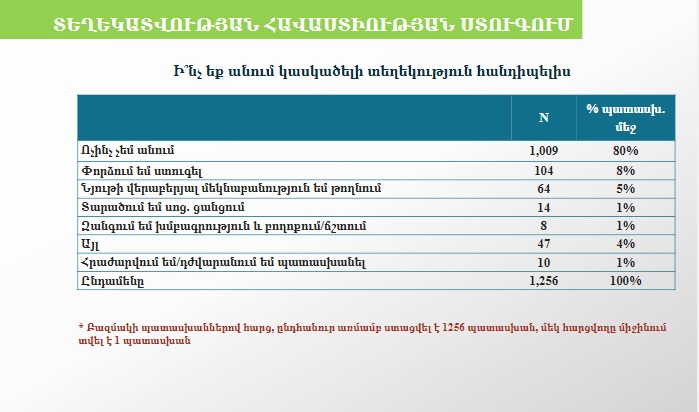
By the way, consumers are very good at understanding what the first signs of suspicious information are but choose to not do anything.
In any case, the steps to check the reliability of the sites, which were also mentioned spontaneously, prove a rather high level of literacy. In the first place is the search to understand who owns the site.
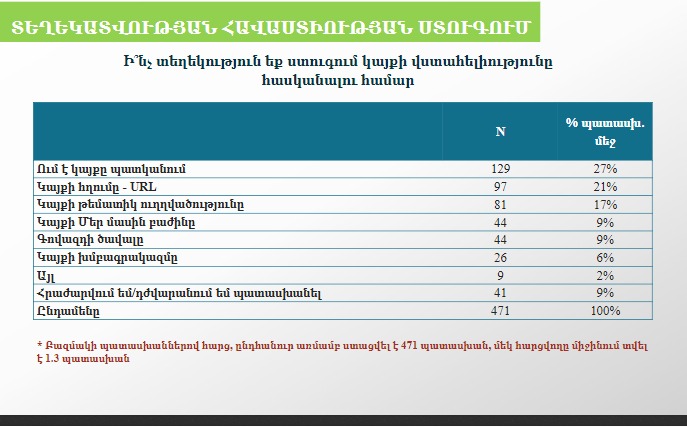
International television was considered the most independent (Russian is a separate line), but the difference is not very big.
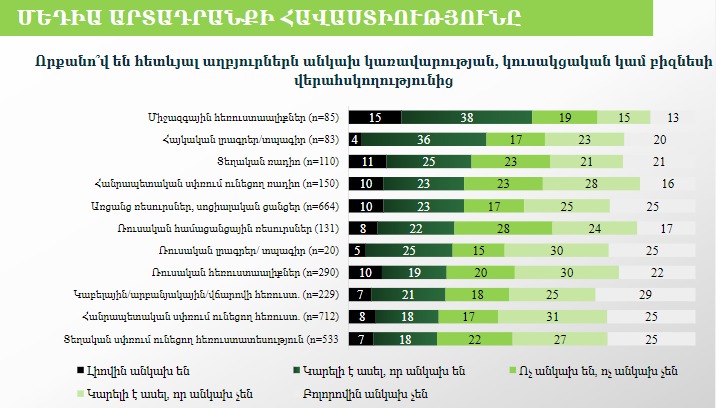
Of course, this data also suggests that the respondents want to appear as more conscientious consumers than they really are. After all, when it comes to a few extra clicks, few admit to being ready to do them. For example, click on the link of the source. They don’t do it, although they are convinced that it is a necessary step.
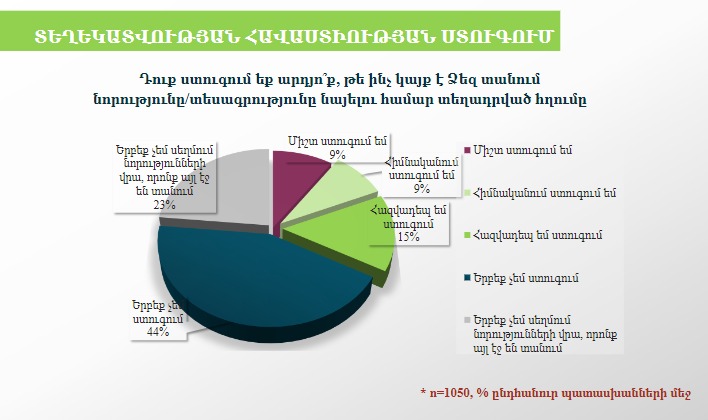
Nune Hakhverdyan


Add new comment
Comments by Media.am readers become public after moderation. We urge our readers not to leave anonymous comments. It’s always nice to know with whom one is speaking.
We do not publish comments that contain profanities, non-normative lexicon, personal attacks or threats. We do not publish comments that spread hate.